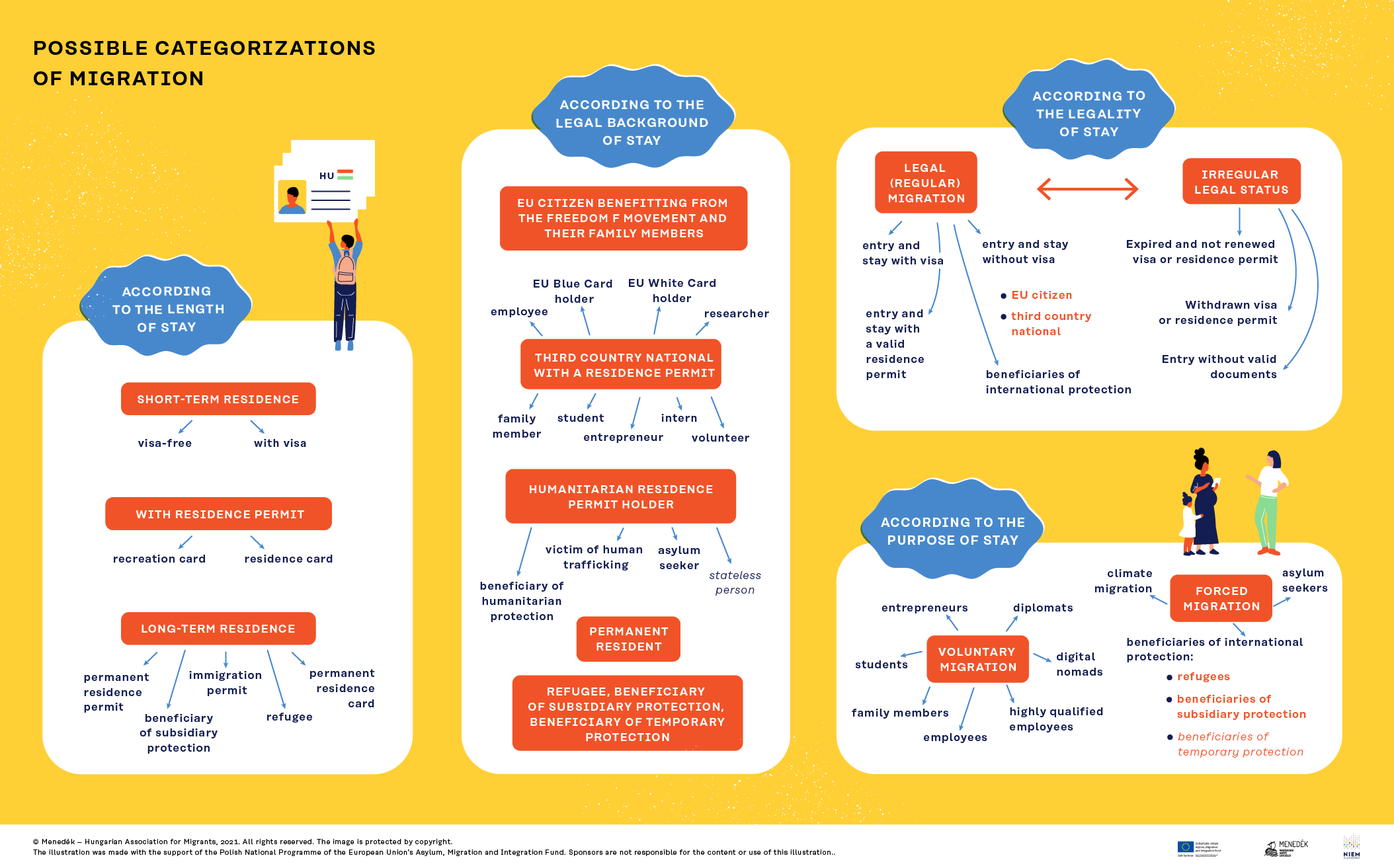
Interpreting and analyzing migration is a complex task. First, we need to be clear about the concepts. We consider migration to be any movement that results in someone starting to live in a country other than where they were born or of which they are a citizen.
Depending on the length of stay, we can talk about short-term and long-term migration.
According to the title of the residence, we distinguish several categories. One of the groups is EU citizens and their family members, who are free to enter and reside in Hungary. Another group consists of third-country nationals (ie non-EU) with a residence permit, whose residence is subject to a permit. They are granted a permit only for a specific purpose of residence (eg work, study, business, etc.). If they stay here for a long time, they can apply for a residence permit. Yet another group is the beneficiaries of international protection: refugees, beneficiaries of subsidiary protection, beneficiaries of humanitarian protection and beneficiaries of temporary protection can stay in the country under international asylum law.
According to the lawfulness of the stay, all the categories listed in the previous point are legal, while the stay of those who entered the country illegally or entered the country legally, but their visa has expired is illegal.
The motivation of migration is voluntary if one came of one's free will - to study, work, etc. - and forced if someone had to leave their home. The latter group includes asylum seekers and beneficiaries of international protection: refugees, beneficiaries of subsidiary protection, beneficiaries of humanitarian protection and beneficiaries of temporary protection.
